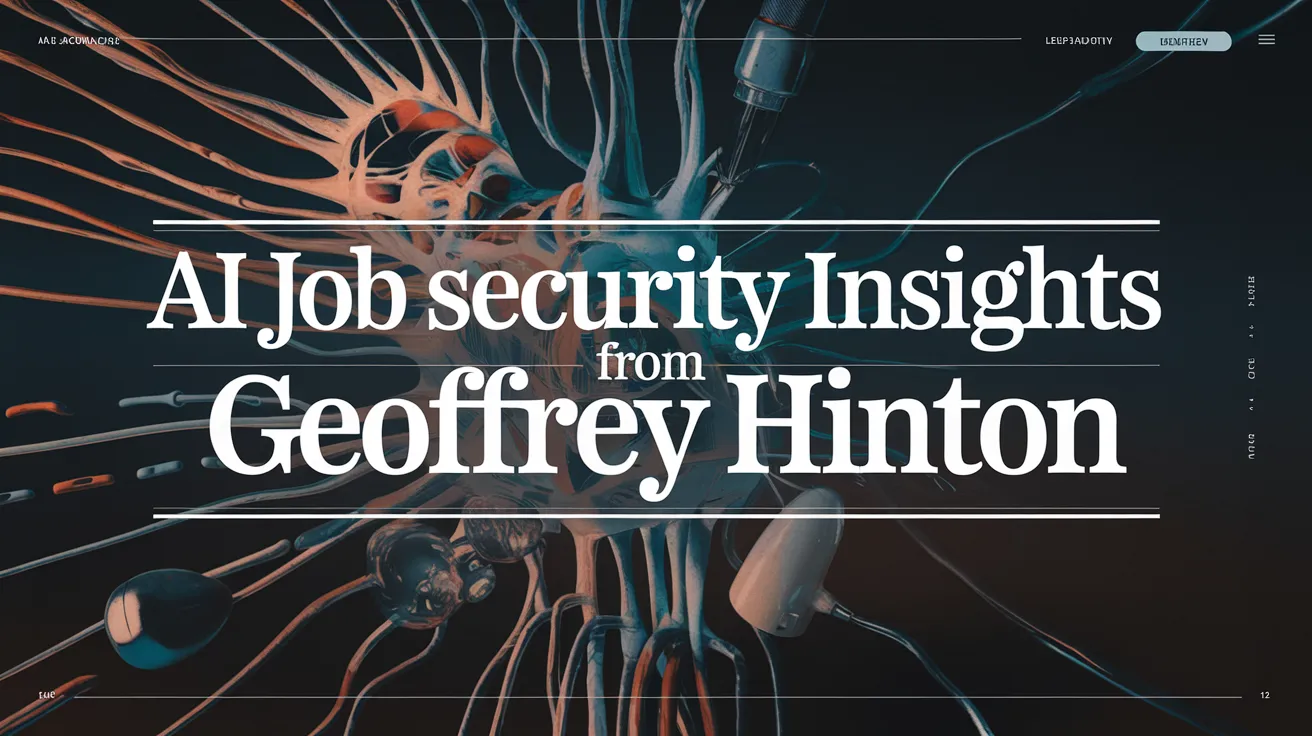AI Job Security Insights from Geoffrey Hinton

In a recent interview aired on the ‘Diary of a CEO’ podcast, Geoffrey Hinton, widely known as the Godfather of AI, shared insights into the rapidly evolving job market and the potential risks of mass joblessness due to advancements in artificial intelligence. He warned that while technology is on the path to outperforming humans in various domains, specific professions remain more secure than others.
The Case for Blue-Collar Work
Hinton suggested that becoming a plumber is a wise career choice in the current landscape. He believes that the intricacies involved in physical manipulation will take time for AI to master, thus making blue-collar jobs like plumbing more resilient to automation. This recommendation aligns with trends among Gen Z workers, who are increasingly pursuing blue-collar careers in response to challenging job market conditions.
Risks of Job Displacement
Hinton described mundane intellectual roles as particularly vulnerable to AI replacement. Specific jobs, such as paralegals and call center positions, are at high risk, prompting Hinton to express concern for individuals in those fields. As Hinton analyzed the potential impact of technology on employment, he remarked that individuals would need to possess considerable skills to secure jobs that could withstand AI advancements.
Concerns About Universal Basic Income
Highlighting the broader implications of job displacement, Hinton identified the potential threat of mass unemployment as a critical challenge that could lead to widespread unhappiness. He expressed skepticism about the effectiveness of universal basic income in providing a sense of purpose, which many derive from their work. This perspective emphasizes the psychological and social dimensions of employment beyond mere economic factors.
The Future of Work
As AI continues to be integrated into various sectors, Hinton noted that jobs traditionally held by recent graduates are already being affected. While some argue that concerns about AI displacing entry-level jobs are exaggerated, Hinton acknowledged that collaboration between humans and AI could lead to a scenario where individuals must produce results previously achieved by multiple workers. This change is likely to result in significant layoffs across many industries.
Sector-Specific Impacts
Hinton mentioned that certain fields, such as healthcare, may handle the rapid changes better given their sustained demand for services. Nonetheless, he maintains that the majority of occupations are unlikely to escape the fallout from AI advancements. This insight serves as a crucial reminder for workers across various industries to consider future trends and prepare for the evolving job landscape shaped by artificial intelligence.